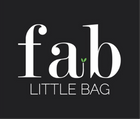
Menstrual Hygiene Awareness Day: Small Changes, Big Impact
May 28th is Menstrual Hygiene Day, a global movement dedicated to raising awareness around the importance of menstrual health and hygiene for all.
Millions of people around the world still lack access to safe, clean, and dignified ways to manage their periods. Whether it’s due to stigma, lack of products, poor infrastructure, or environmental impact—menstrual hygiene is a public health issue that deserves attention, conversation, and action.
Here’s why menstrual hygiene matters—and how even the smallest shifts in habits, access, and attitude can have a powerful ripple effect.
Why Menstrual Hygiene Deserves More Attention
Menstrual hygiene is about more than just access to pads or tampons. It’s about:
-
Access to clean water and private toilets
-
Availability of safe, effective products
-
Knowledge and education about menstrual health
-
The ability to manage menstruation without shame or stigma
When menstrual hygiene is lacking, the consequences are real:
-
Girls miss school
-
Women miss work
-
Infections increase
-
Confidence decreases
-
Stigma thrives
But when it’s supported? People thrive.
What Does Good Menstrual Hygiene Look Like?
At its core, good menstrual hygiene means enabling people to feel safe, confident, and clean—no matter where they are.
That includes:
✔ Access to a variety of period products (pads, tampons, cups, pants, etc.)
✔ Safe, private bathrooms with running water and soap
✔ Bins in every toilet, not just communal ones
✔ Education that teaches people how to manage their period safely and proudly
✔ Respect and openness in workplaces, schools, public spaces, and homes
It also means breaking taboos and creating environments where people aren’t afraid to talk about their periods—or ask for support when they need it.
Menstrual Hygiene & the Environment
While managing your period should be hygienic and empowering—it should also be sustainable.
Many conventional pads and tampons contain up to 90% plastic, and most are wrapped in single-use materials that end up in landfills or oceans. Worse, millions of them are flushed down the toilet each day—causing plumbing issues and marine pollution.
So while hygiene is the priority, we also need to consider:
-
What products we use
-
How we dispose of them
-
Whether our period routine supports the planet as well as ourselves
Where FabLittleBag Comes In
That’s where FabLittleBag plays a supporting role.
Good menstrual hygiene doesn’t stop at the product—it continues with how we dispose of it. Flushing isn’t hygienic. Nor is wrapping a tampon in toilet paper and hoping for the best.
FabLittleBag offers a discreet, hygienic, and sustainable period disposal solution:
-
Odour-sealing and leak-proof
-
Opens with one hand for ease
-
Made from sustainable materials
-
Ideal for toilets with no bins, shared bathrooms, or travel
It’s a small addition to your period routine, but one that makes a big difference to your confidence, cleanliness, and the planet.
How You Can Support Menstrual Hygiene Awareness Day
You don’t need to launch a campaign to make a difference. Here’s how anyone can support menstrual hygiene—on May 28 and beyond:
- Talk openly about periods—at home, work, or school
- Donate products to local period poverty initiatives
- Advocate for better facilities in your workplace or community
- Choose products that are safe for your body and the planet
- Provide bins and FabLittleBags in your bathrooms to support hygienic, stress-free disposal
Small Changes, Big Impact
This Menstrual Hygiene Awareness Day, we’re reminded that access, dignity, and sustainability go hand in hand. Everyone deserves to manage their period with confidence—and that starts with clean facilities, trusted products, and the ability to dispose without shame or stress.
Because menstrual hygiene isn’t optional—it’s essential.
